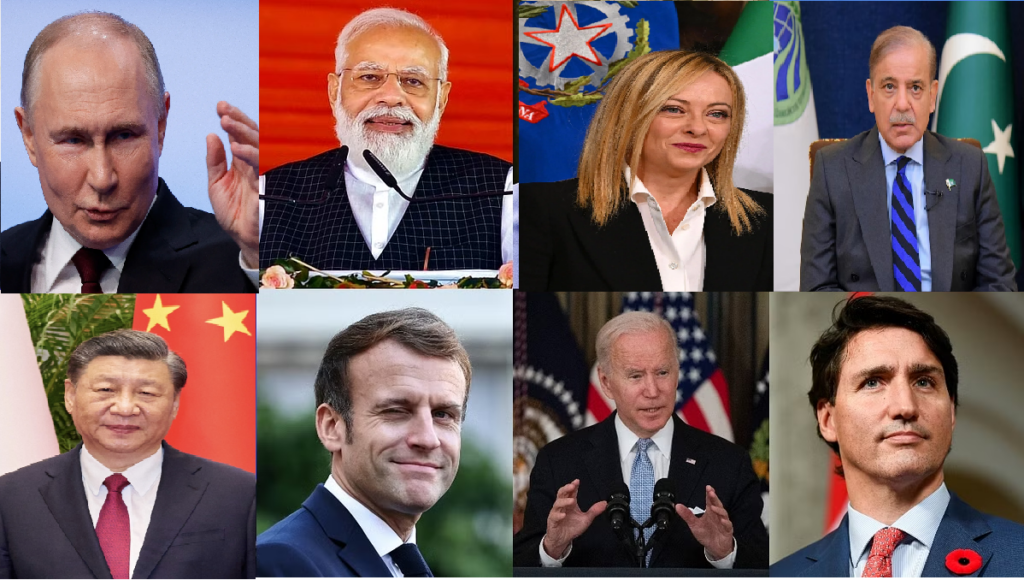
After the recent conclusion of the Lok Sabha elections in India, it is now clear that Narendra Modi will be the Prime Minister for the third consecutive term and the National Democratic Alliance (NDA) will form a coalition government for the next 5 years. Modi’s recent victory as expected has caught a lot of international attention where several leaders have expressed their happiness and a few notable ones don’t seem very happy.
Modi is one of those very few leaders who has received goodwill from both the US and Russia. Looking into who has shared their reactions we find that the Italian Prime Minister Giorgia Meloni was rather quick to congratulate PM Modi and said that she is looking forward to working with India and strengthening Indo-Italian relations. This show of excitement is expected as Italy is all set to host the G7 summit where India is invited as a guest nation. The G7 summit will be very important for Italy and it is happening within a week after Modi’s oath-taking ceremony.
French President Emmanuel Macron also congratulated PM Modi and expressed his excitement for working with India and to further strengthen their strategic partnership. The excitement of President Macron doesn’t come as a surprise as France has signed numerous big-budget defence deals and has found a very capable trade partner in India during the past decade. Next on the list is EU chief Ursula von der Leyen who congratulated PM Modi and expressed her desire to work together and strengthen the ties between India and the EU. The EU elections are scheduled this year and after the election, we can see a free trade agreement between India and the EU. This agreement has been in talks for a while now and this year we could finally see it happen.
US President Joe Biden was a bit late to the show as he too expressed his goodwill to the PM and expressed his desire to work with PM Modi and strengthen the India-US partnership which has unlimited potential. Many eyes were on Canadian Prime Minister Justin Trudeau who eventually gave his reaction when he talked about working for human rights, diversity and the rule of law. These words are a clear outcome of the strained Indo-Canadian relations over the issue of Khalistan. A Canadian government organisation after the Lok Sabha results published a report where it stated that India is the second biggest threat to Canadian democracy.
On the other hand, Russian President Putin talked to PM Modi on a phone call after his victory and discussed the future possibilities between the two nations. Leaders of Sri Lanka, Nepal, Bhutan, Mauritius and Maldives also expressed their happiness and these five countries are also invited to the oath-taking ceremony of PM Modi on the 9th of June. However, there has been no reaction from the Pakistani PM while there has been a very cold reaction from the foreign ministry of China. The silence of Shehbaz Sharif could be due to his ongoing 5-day visit to China and would not want to upset Xi Jinping.
While the governments of both these neighbours have been silent, their media has been very vocal and in contrasting styles. The Pakistan media has extensively covered the elections and after Modi’s win has said that there is no hope left for Indo-Pak relations to get any better. On the other hand, Chinese media and Chinese authors in foreign media organizations have repeatedly been saying that India’s economic ambitions will slow down due to the coalition government and that India can never emulate China due to this. These sentiments in mouthpieces of the Chinese government are seen as a reflection of their government’s feelings.
In conclusion, there is no doubt that the new government is going to be different and it is to be seen how well India tackles the political dissension from some of its neighbours and also how well it can meet the high expectations from the West while balancing its relations with Russia.
